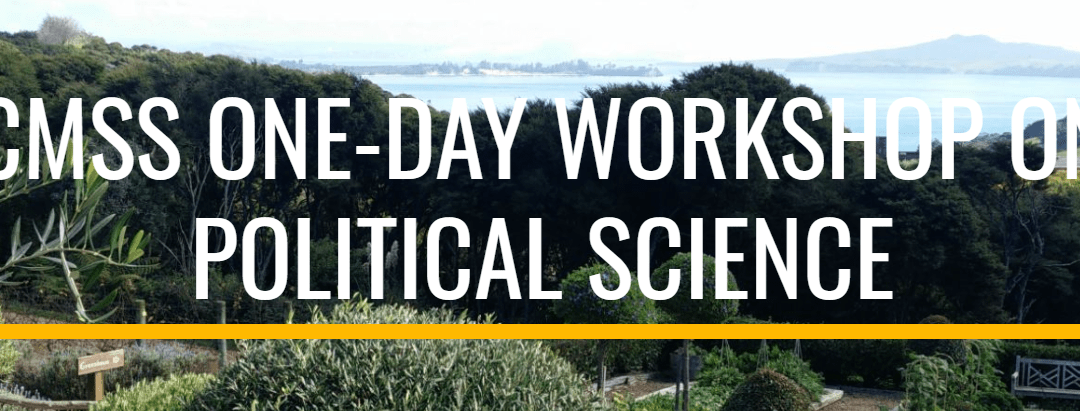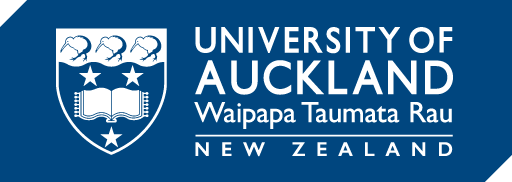
by sfab358 | Mar 28, 2025
Welcome to the Kalman Foundation & Centre for Mathematical Social Science (CMSS) Public Lecture featuring Prof Clemens Puppe from the Karlsruhe Institute of Technology (KIT), Germany.
You can find slides of the talk here, and a recording of the talk here. Photos taken at the public lecture are available here.
Timing of the event:
- 6pm-6:30pm Welcome reception in the foyer on level 1 of Sir OGGB
- 6:35pm-6:40pm Opening speech in room 260-055 (CaseRoom 3) on level 0 of Sir OGGB
- 6:40pm-7:40pm Public Lecture in room 260-055 (CaseRoom 3) on level 0 of Sir OGGB
- 7:40pm-7:55pm Q&As Session in room 260-055 (CaseRoom 3) on level 0 of Sir OGGB
Title of the Public Lecture: “Direct Democracy: The Budget Allocation Problem and Multi-Dimensional Medians” – copy of the paper related to the lecture can be found here
Abstract: The budget allocation problem is the problem of allocating a fixed amount of money (e.g. tax revenue) to different purposes (e.g. infrastructure, health, defense, education). What if different stakeholders (e.g. citizens) have different views and ideas how the money should be spent? Prof Puppe investigates different methods of formulating a compromise between the involved parties, and shows that the problem transforms into the mathematical problem of defining an appropriate notion of multi-dimensional median.
About our guest speaker: See his Wikipedia page at https://en.wikipedia.org/wiki/Clemens_Puppe
Bio: Clemens Puppe studied Mathematics and Philosophy at the University of Heidelberg and the Free University of Berlin and received his Ph.D. from the University of Karlsruhe with a thesis on individual decision making under uncertainty. After a post-doc year at Harvard, he joined the Department of Economics at the University of Vienna where he received his habilitation in 1997. From 1997 to 2003 he was associate professor of economics at Bonn University, and since 2003 he is full professor at Karlsruhe Institute of Technology (formerly, University of Karlsruhe). His research centers around topics in microeconomic theory, especially decision theory and social choice theory. In either area, he is interested both in normative questions and in issues related to behavioral analysis. He held visiting positions at a number of institutions abroad, among them the University of California at Davis, the University of Melbourne, the University of Auckland and the Université Paris-Dauphine. From 2020 – 2023, he served as “Leading International Researcher” at the Higher School of Economics (Russian Federation). In the academic year 2021/22, he was appointed “Oliver Smithies Visiting Fellow” at Balliol College, Oxford University. For the academic year 2024/25 he serves as “Invited Distinguished Research Fellow” of the Corvinus Institute for Advanced Studies (CIAS) in Budapest. He is co-editor of the “Handbook for Rational and Social Choice” for Oxford University Press. From 2012 – 2024, he served as managing and coordinating editor of Social Choice and Welfare. Currently, he is member of the Editorial Board of Economics and Philosophy. He served as dean (2008 – 2012) and vice-dean (“Prodekan”, 2004 – 2008 and 2014 – 2016) of the Department of Economics and Management at KIT. From 2018 – 2022 he was elected member of the senate of Karlsruhe Institute of Technology. Since 2023, he is the dean of studies responsible for the new study course “Digital Economics”.


by sfab358 | Dec 11, 2024
ALL LECTURES AND TALKS WERE HELD IN ROOM 260-055 CASEROOM3 (max capacity 69)
DAY 1 Morning – Lectures by Rabah Amir on Supermodularity and Applications (see more details here) – summary slides
10:00-11:30 Lecture I “Supermodular optimization and comparative statics”
11:30-11:45 Short Break
11:45:13:00 Lecture II “Games with strategic complementarities”
13:00-14:30 Lunch at Superfino Café (Level 1 of Sir OGGB)
DAY 1 Afternoon – Contributed Session
14:30-15:00 Joshua Greenwood “Democratic backsliding and media scrutiny” joint with Chanelle Duley and Prasanna Gai – slides
15:05-15:35 Doriani Lingga “Tax and subsidy policies in a two-sided market: An application to the digital healthcare industry” joint with Simona Fabrizi and Steffen Lippert – slides
15:40-16:10 Yibin Li “Bayesian persuasion with additional information” – slides
16:15-16:45 Steffen Lippert “Attack, defense, and the market for protection” joint with Simona Fabrizi and Jose A. Rodrigues-Neto – slides
17:00- Informal drinks at the Old Government House
DAY 2 Morning – Lectures by Rabah Amir on Supermodularity and Applications (see more details here)
10:00-11:30 Lecture III “Mathematical treatment of supermodularity”
11:30-11:45 Short Break
11:45:13:00 Lecture IV “Other selected topics”
13:00-14:30 Lunch at Superfino Café (Level 1 of Sir OGGB)
DAY 2 Afternoon – Contributed Session
14:30-15:00 Scarlett Buissink “Political positioning games of parties with ideologies” joint with Umberto Grandi and Arkadii Slinko – slides
15:05-15:35 Yunjie Shi “Waiting and preemption in public goods contribution” – slides
15:40-16:10 Diego Carrasco “Pandora with multi-unit search” joint with Allan Hernandez Chanto and Tono Carrasco – slides
16:15-16:45 Matthew Ryan “A stricter canon: general Luce models for arbitrary menu sets” joint with Jose A. Rodrigues-Neto and James Taylor – slides
17:00- Informal drinks at the Old Government House

by sfab358 | Dec 11, 2024
We are pleased to host a two-day event, on Thursday & Friday, 20 & 21 February 2025, with mornings devoted to a mini-course and guest lectures by Professor Rabah Amir from the University of Iowa, and afternoons devoted to research talks by CMSS members, research students, and other interested scholars from the region. For more info about the mini-course and to register for it by the set deadline of Monday, 10 February 2025, please visit https://forms.gle/XkaeRrZ7yqKCCP4z9
[Please also see related call for submissions to be considered for inclusion in the final program of the workshop linked to this event, as available at https://forms.gle/Zk2HYi25tUB6pKD16 – Submissions are due by Monday, 13 January 2025]
Rabah Amir is a prominent Professor of Economics based at the University of Iowa. He has a PhD from the University of Illinois and was a Research Fellow at the Cowles Foundation, Yale University (1985). From 1985-1990 he was Assistant Professor in Economics and Applied Mathematics & Statistics, at the S.U.N.Y. at Stony Brook. After that he was researcher at the University of Dortmund in Germany and at the Universit ́e Catholique de Louvain, Belgium. From 1995-1997 he was Senior Fellow, Wissenschaftszentrum Berlin (WZB), and from 1997-2000 Professor of Economics at Odense University, Denmark and at the Center for Industrial Economics, University of Copenhagen. He was Professor at the School of Economic Studies at the University of Manchester, UK (2000-2001) at the Universit ́e Catholique de Louvain, Belgium (2001-2004). From 2004-2012 he was Eller Professor, at the Eller School of Management Department of Economics, University of Arizona, USA, and since 2013 he is the J. Edward Lundy Professor of Economics at the University of Iowa. Prof Amir received the Handelsbanken Research Prize of Denmark in 1998 and was selected as an Economic Theory Fellow in 2011 by the Society for the Advancement of Economic Theory, elected to Council member of the Game Theory Society in 2015 and elected Fellow of the Game Theory Society in 2020. He is ranked among the top 5% economists by the database IDEAS. One of his main research topics is the study of strategic substitutability and complemen- tarity in economics and their consequences to answer issues in industrial organisation, game theory or microeconomics. He uses mathematical modelling to address topics across a variety of subject areas and applications.
The purpose of the mini-course is to provide a presentation of some selected topics in the theory of supermodular optimisation and games along with some of the associated applications in economics.
The common thread of many of the topics will be economic complementarity. While the treatment will rely directly on research papers and will thus be quite advanced, a definite attempt will always be made to arrive at a self-contained exposition of the main concepts. A simplified introduction to some of the relevant mathematical notions will be given whenever necessary. Economic applications, mostly to models in Industrial Organisation, will form a significant part of the course.
The list of topics is as follows. The first two bullet items will be fully accessible to all PhD students, as only basic mathematics for economists will be assumed known.
- Supermodular optimization and comparative statics
Elementary introduction to Topkis’s Theorem with scalar variables and its basic economic applications in familiar settings. This follows my survey article, Amir (2005).
- Games with strategic complementarities
Formal definition; Existence of pure-strategy Nash equilibrium; Partial coincidence of solution concepts; Equilibrium comparative statics; Learning and pure-strategy equilibrium; various applications, in particular to consumer theory, oligopoly theory and industrial organization (including Cournot and Bertrand competition).
- Mathematical treatment of Supermodularity (on demand from audience only)
This is a complete introduction to lattice theory to treat the multi-dimensional case, and Topkis’s Theorem in full generality.
References
1. R Amir (2005), Supermodularity and complementarity in economics: An elementary survey, Southern Economic Journal, 71, 636-660.
2. D. Topkis (1998), Supermodularity and complementarity, Princeton University Press.

by sfab358 | Aug 19, 2024
The Centre of Mathematical Social Science (CMSS) was pleased to host a one-day specialised transdisciplinary workshop on the themes of mis- and dis-information featuring two research groups based respectively at Victoria University of Wellington (VUW) and the University of Auckland (UOA) talking about their research projects focussing on those themes.
When: Tuesday, 27 August 2024, 10:30am to 12:30pm & 2pm to 4pm
Venue: Room 260-307 [City Campus, Sir OGGB, level 3, room 307, 12 Grafton Road, Auckland – see map]
Guest speakers from VUW were:
Further invited speakers and contributors were:
The event was held in person, but remote access was guaranteed for interested attendees wanting to join online.
Convenor: Simona Fabrizi — CMSS Co-Director and Coordinator/Leader of the Infodemic Project
The workshop was sponsored via the Transdisciplinary Ideation Fund, awarded to Simona Fabrizi as a PI in the 2023 round and running until the end of 2025. The support of the Vice-Chancellor Office of the University of Auckland for the advancement of the Infodemic Project is also kindly acknowledged.
The CMSS is a transdisciplinary research centre with members from fields, including mathematics, economics, computer science, philosophy, and statistics. Research covers areas such as decision-making, social choice, voting, social networks, game theory, and experimental economics.

by sfab358 | Oct 26, 2023
The Centre of Mathematical Social Science (CMSS) is pleased to announce a one-day workshop on a broad range of issues in Political Science. The main topic will be on voting rules and elections but other related topics will be considered as well. In particular, the following may be of interest:
– the impact of various voting rules on minorities (be they smaller political parties or ethnic minorities);
– design of elections (eg., redistricting problems in the USA);
– MMP and the postmortem to the NZ 2023 elections.
Invited speakers:
– Bernard Grofman (University of California, Irvine)
– Jon Fraenkel (Victoria University of Wellington)
When: Thursday, 1 February 2024
Venue: Old Government House, University of Auckland
To read more about the program of the event, please visit the following URL address: https://sites.google.com/view/cmss-political-science-day/home
The CMSS is a transdisciplinary research centre with members from fields, including mathematics, economics, computer science, philosophy, and statistics. Research covers areas such as decision-making, social choice, voting, social networks, game theory, and experimental economics.
If you are willing to participate (no participation fee applies but the workshop dinner may be at your cost) get in touch with one of the co-directors of the centre.
Simona Fabrizi and Arkadii Slinko, CMSS Co-Directors







Recent Comments